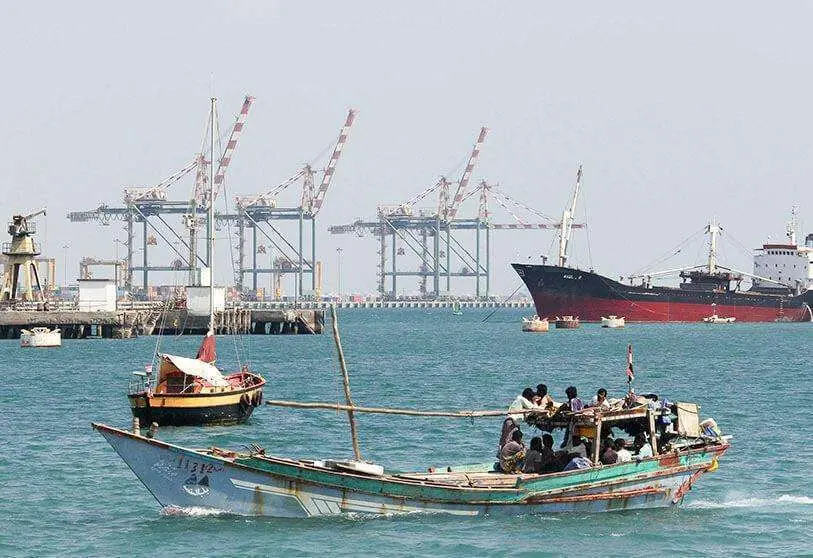Saudi Coalition destroys two ships loaded with explosives in the port of Salif in Yemen

The coalition led by Saudi Arabia to intervene in Yemen on behalf of the internationally recognized government announced on Thursday the destruction of two ships loaded with explosives, near the port of Salif on the Red Sea, belonging to the Hutu rebels.
The official spokesman of the coalition, Colonel Turki al-Malki, said in a statement collected by the Saudi news agency SPA that both ships - belonging to the Iranian-backed Shiite militias - had been destroyed about six kilometres south of the port of Salif. "These targets represented an imminent threat to international trade and to regional and international security", he said.
They also warned that the two targets destroyed were two boats loaded with bombs "prepared to carry out imminent hostile and terrorist actions in the Bab Al-Mandab Strait and the Red Sea. According to the Saudi coalition spokesman, the Hutus are using the Hodeida governorate to launch ballistic missile or bomb-laden drone attacks, "in constant violation of the rules set out in international humanitarian law and the provisions of the Stockholm Agreement".
"The coalition will continue to implement all necessary measures and procedures to deal with legitimate military objectives such as these, in accordance with customary international humanitarian law. It also maintains its support for the efforts of the UN Secretary-General's Special Envoy to implement the Stockholm Agreement, to end the coup and to achieve a sustainable and comprehensive political solution to the Yemeni crisis," he concluded.
The destruction of these two vessels has taken place just three days after this same coalition accused the Republic of Iran of using fishing vessels in its territorial waters as "camouflage, and as cover for smuggling weapons, ballistic missiles and drones to supply the Hutu militia".
Meanwhile, the latest United Nations report in the region has indicated that "the movement of supplies in the country remains particularly problematic due to lengthy pre-approval processes and delays in receiving the necessary authorizations and permits. However, $2.3 million worth of supplies arrived in Yemen in May from Djibouti and Oman," they said. In addition to the war and the crisis caused by the coronavirus pandemic, there is also food insecurity and other diseases such as diarrhoea and cholera. "In May, 10,086 cases of acute watery diarrhea (AWD) were reported and six associated deaths, with a mortality rate of 0.06%," they have stressed.
At the UN-mediated talks in Sweden in December 2018, representatives of the internationally recognized government of Yemen and those of the Iranian-backed rebel movement announced what is now known as the Stockholm Agreement. This document provided for the exchange of prisoners or the relocation of troops from Hodeida. A year and a half later, Yemen remains in the grip of one of the world's most serious humanitarian crises. The conflict plaguing the country, which confronts the government led by Abdo Rabbu Mansur Hadi, supported by Saudi Arabia, and the Hutu rebels, who have the backing of Iran, have brought this region to the brink.








